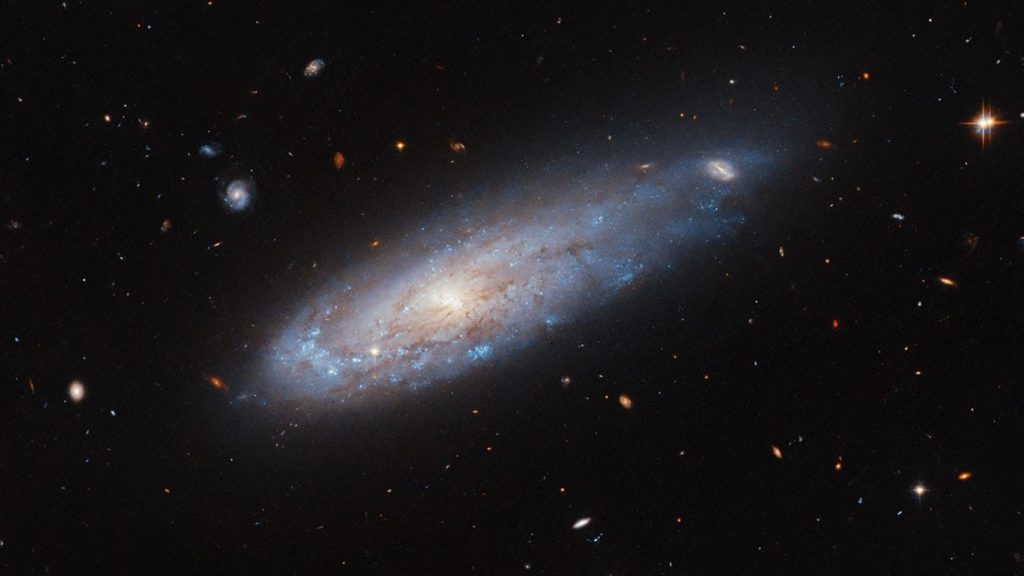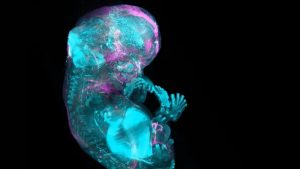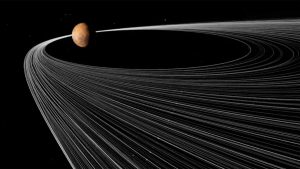Check out Hubble’s latest catch: the stunning IC 3225 galaxy!

The Hubble Space Telescope, a joint mission by NASA and the European Space Agency (ESA), has captured an image of the spiral galaxy IC 3225, which appears as if it were launched like a “celestial cannonball.” Positioned within the Virgo galaxy cluster roughly 100 million light-years from Earth, IC 3225 displays a distinctive structure, with a dense arm filled with young, hot blue stars and an elongated tail of gas extending behind it. The galaxy’s dramatic appearance provides clues about its high-speed travel through the crowded Virgo cluster.
The Power of Ram Pressure
IC 3225’s shape can be attributed to a process called “ram pressure stripping.” The galaxy is moving through an area filled with hot gas. It is known as the intracluster medium which exerts immense pressure on any galaxy passing through it. This resistance strips away gas from galaxies, preventing or slowing down star formation. However, it can also increase star formation on one side by compressing gas, as seen on IC 3225’s bottom-left side, where new stars are visibly forming in bright blue clusters. Scientists theorise that IC 3225 underwent this process in the past, leading to its compressed, distorted shape.
Impact of the Cluster Environment
The densely populated Virgo cluster, home to over 1,300 galaxies, places its members under constant gravitational interactions and pressure. This environment influences the shape and behaviour of galaxies like IC 3225. As it moves, interactions with other galaxies and the intense gravitational forces within the cluster stretch and pull it, adding to its irregular form. Astronomers speculate that IC 3225’s shape could also be a result of close interactions with other galaxies in the cluster, enhancing the effects of ram pressure stripping.
The image of IC 3225 is another insight into the dynamic forces shaping galaxies, illustrating the turbulent environments that can alter galaxies over time.



